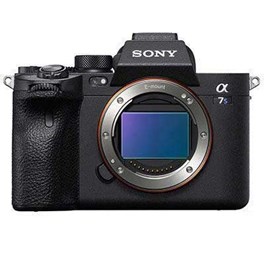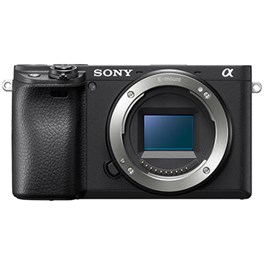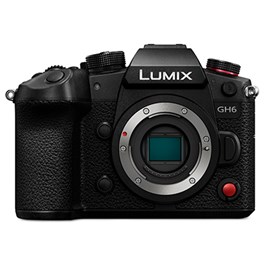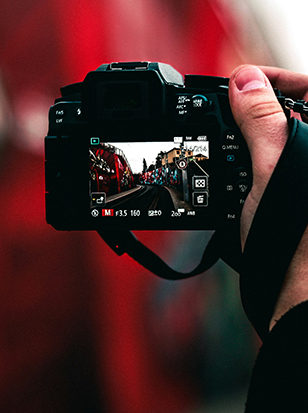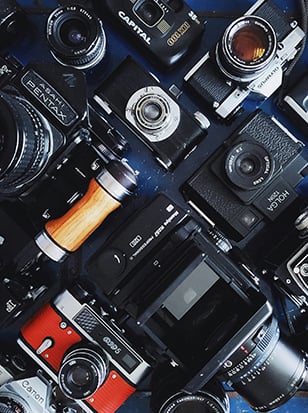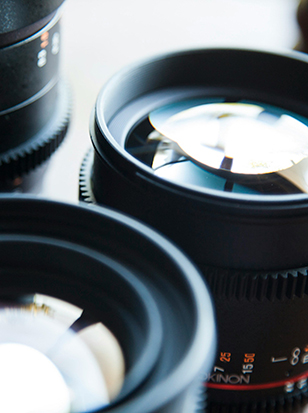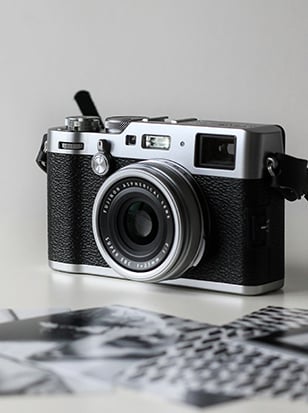
With video on consumer cameras getting better all the time, choosing the best cameras for video right now is a hard task! We’re here to make it simpler, and we have put together this guide to help anyone who is in the market for a new video camera.
We've engineered this list to cover the full range of video options on the market right now. As such, we've included mirrorless cameras, a DSLR, professional-grade camcorders and a compact camera or vlogging, as well as a waterproof action camera and even a drone! Whatever kind of video you want to shoot, the models and brands on this list, including Sony, Canon, Nikon, Panasonic and Blackmagic, should have you covered. We've factored price into our choices as well, so you can be sure you'll be getting value for money.
Quick Navigation
Our top picks
Sony A7S III Digital Camera Body
Free Gorillapod worth £99 Plus £150 Trade-in bonus
The Sony A7S III Digital Camera Body is the latest addition to Sony's S series camera line up. These cameras are designed to provide the highest level of sensitivity possible and the Sony A7s III does just that. It's equipped with an Exmor R 12MP Full-Frame BSI Sensor with an ISO sensitivity range from 80 to 102400, expandable from 40 to 409600. A newly designed BIONZ XR Processing engine provides up to an 8x faster performance over previous models. Its video capabilities are overwhelming, offering 4K 120P (4:2:2 10bit) recording and FHD 240P for stunning slow-motion video. It's equipped with an incredible 759 point on-sensor phase decision AF with real-time eye tracking of both humans and animals, as well as real-time tracking in both video and stills. This camera demonstrates Sony's ability to produce stunning image quality and professional performance in one body.
£2,969.00 inc. Cashback View
Pros:
- Exceptional suite of video options
- Incredible in low light
- Loads of E-mount lenses to choose from
Cons:
- Low resolution limits hybrid use for stills
Mirrorless video shooters have been singing the praises of the Sony A7S series ever since the first one arrived all the way back in 2013. The wait for the A7S III was long, but it’s definitely been worth it, with this highly sophisticated model being more attuned than ever to the needs of video producers.
Equipped with an Exmor R 12MP full-frame BSI sensor, the Sony A7S III sports a native ISO range of 80 to 102,400, expandable to 40 to 409,600. The first camera made headlines for literally turning night into day, and this one continues that noble tradition, with the addition of a BIONZ XR Processing engine that improves its performance eightfold over previous models.
The A7S III offers 4K 120P (4:2:2 10bit) and FHD 240P recording, as well as S-Log FX9 colour-matching, 5-axis stabilisation, a 759-point autofocus system, and lots, lots more. Unmatched in speed and sensitivity, the A7S III is a game-changing mirrorless camera for video shooters, and one we expect to see a lot of content shot on in the years to come.
Canon PowerShot G7 X Mark III Digital Camera Battery Kit - Black
The Canon PowerShot G7 X Mark III allows users to create content that defies expectations and surpasses what you're used to seeing from your smartphone. Incredible 4K video, sumptuous 20.1-megapixel photos and high-speed shooting that stops fleeting moments in time. Please note: This is the black version of this camera. The kit comes with a spare battery.
£799.00 View
Pros:
- Slim, lightweight package
- Good-looking 4K and Full HD
- Livestreaming option
Cons:
- Fairly short zoom range
- Smaller sensor than interchangeable-lens rivals
One of the best cameras for vloggers available right now, the Canon PowerShot G7 X Mark III may look like a tiny compact, but it’s got the capacity to shoot glorious 4K video, as well as Full HD movies at a super-slow 120fps. There’s the option to plug in a mic via the 3.5mm jack, and the lightweight build makes it highly suited to travel.
Add all this to full connectivity features like Wi-Fi and Bluetooth, as well as a slim form factor and a 4.2x optical zoom lens, and you can see why vloggers have flocked to this self-contained shooting package. It’s even got the capacity for livestreaming, allowing you to give your Facebook Live videos that little professional polish you won’t get from recording on your smartphone.
Pros:
- Affordable route into 4K
- Live View autofocus is excellent
- Lots of lenses available
Cons:
- No weatherproofing
An ideal first step for someone looking to get into DSLR video, the Canon EOS 250D is not only an eminently capable camera with a broad feature-set, it also gives you access to the enormous range of EF-mount lenses. From here you are all but guaranteed to find a lens with a focal range that suits you, at the right price too.
The EOS 250D may be on the cheaper end of the DSLR scale, but Canon hasn’t skimped on features. It shoots 4K video, and indeed is one of the smallest and cheapest DSLR cameras to do so, making it ideal for travel videography, vlogging and more. Its 4K frame rate tops out at 25p so it’s not challenging the big boys anytime soon, but it does what it does well, and is bursting with nifty extra features such as a high-quality vari-angle LCD that’s great for monitoring your shots, as well as Dual Pixel Autofocus with a whopping 3,975 focal points across the frame.
The EOS 250D not only gives you everything you need to shoot video right away, it also offers a great deal of room to grow, thanks to its EF lens mount. Whatever video projects you have in mind, this capable little DSLR will keep up.
Sony A6400 Digital Camera Body
The Sony A6400 Digital Camera Body bridges the gap between Sony's massively popular full-frame CSC, and APS-C line-ups. The camera offers the world's fastest (as of writing this article) AF acquisition of 0.02 seconds. Users can enjoy the newly developed 'Real-Time Eye AF', and 'Real-Time Tracking'. The A6400 is also capable of capturing up to 11fps with AF/AE tracking, and includes a BIONZ X image processor, a tilt-able LCD touch screen, and 4k video recording.
£779.00 View
Pros:
- 180-degree tilting screen is good for vlogging
- Autofocus works very well
- Hybrid Log-Gamma profile
Cons:
- Not many physical control buttons
- Sony’s menus can be confusing
Though Sony’s full-frame Alpha models are arguably its star-players, it’s great to see that the manufacturer never forgets about APS-C and has released plenty quality cameras in this sensor size. It also tends to keep them in production even after newer ones have come out, providing more options at different price points, such as the A6400. It’s a tidy and capable shooter that can capture 4K 30p video internally with full sensor readout and no pixel binning. It collects approximately 2.4x the amount of data required for UHD video, deliberately oversampling to deliver high-quality results. Not bad!
This was also the first APS-C Sony camera to include the Hybrid Log Gamma profile, allowing for instant HDR workflows, and video shooters can make use of Fast Hybrid Autofocus to ensure the subject is also pin-sharp. The A6400 handles nicely, with an ergonomic design, and its 180-degree tiltable LCD screen also makes it a nice choice for vlogging, making it easy to keep an eye on what you’re filming, as you’re filming it. This action-oriented speedster will find a good home in any videographer’s kit bag.
Nikon D780 Digital SLR Camera Body
The Nikon D780 comes as the eagerly anticipated successor to the well-regarded Nikon D750. It features a powerful 24.5 Megapixel Full Frame CMOS Sensor and EXPEED 6 image processor. This camera body can offer something to every level of photography and videographer alike. It features a 51-point Phase-Detection AF via the Viewfinder and 273-point Hybrid-AF system in Live View. The camera can shoot up to 7 fps with AF/AE and up to 12 fps in Silent Live View Photography mode. When it comes to video, the camera is capable of capturing 4K/UHD footage at 30p/25p/24p with zero crop factor. It also features dual SD card slots and an incredibly useful and high-quality tilting touchscreen.
£2,299.00 View
Pros:
- Excellent video quality
- Lots of recording options (especially when used with a recorder)
- Broad ISO sensitivity range
Cons:
- Bulkier form factor than mirrorless counterparts
- Maximum 30p frame rate for 4K
Blending the best of DSLR and mirrorless technology, the Nikon D780 is one of the finest DSLRs you can choose for video shooting as well as stills. It’s able to use its 6K imaging sensor to output ultra-high-resolution 4K/UHD footage at 30p/25p/24p, with none of the pesky crop factor that plagues many similar cameras.
The D780 also allows the user to record in Hybrid Log Gamma (HLG) footage when it’s paired with an external recorder, and can record N-Log internally. There’s also an impressive sensitivity range to play with, with ISO settings expandable to 50-204,800.
Panasonic Lumix GH6 Digital Camera Body
Since Panasonic’s last release, the GH series has evolved with innovative, user-driven features to become a first-choice, renowned tool for creators. With a 25.2-megapixel Digital Live MOS Sensor, updated Venus Engine Processor and 5.7K 30p internal video recording in ProRes 422 HQ, the Lumix GH6 is the latest addition to the series that continues to push the boundaries of mirrorless cameras.
£1,349.00 View
Pros:
- Lots of video options
- MFT lens mount
- Weatherproof build
Cons:
- Smaller sensor than full-frame / APS-C rivals
Panasonic’s Lumix GH6 is a first-choice, world-renowned tool for creators. Keeping in line with Panasonic’s reputation for versatile video/still-image hybrids, the GH6 is a mirrorless camera with a 25.2-megapixel Digital Live MOS Sensor and updated Venus Engine with double the processing power.
The sensor affords impressive high-resolution imagery with a high-speed signal readout that results in a reduced rolling shutter, a wide dynamic range and faster management of higher-resolution, higher-bit-rate video. Coming hand in hand with the updated sensor is 5.7K 4:2:0 10-bit 60p/50p and 5.8K 30p/25p/24p 4:2:0 10-bit anamorphic 4:3 video recording modes - optimised for the highest level of image quality and versatility that’s needed for any level of video production.
Housed in a body designed to withstand the rigours of everyday professional use, this camera’s magnesium alloy full die-cast front/rear frame is splashproof, dustproof, and freeze-resistant (down to -10°C). Combined with the highly responsive 3,680k-dot 0.76x live viewfinder and a 3.0-inch free-angle touch-control monitor in 3:2 aspect with 1,840K-dot high resolution, the GH6 offers industry-leading specs that truly pushes the boundaries of the mirrorless camera market.
Blackmagic Pocket Cinema Camera 4K
Pre-Order
Offering internal 4K RAW, 13-stops of dynamic range, and Full HD recording up to 120fps (windowed), the Pocket Cinema Camera 4K marks an impressive step up from Blackmagic Design. Building upon the foundation of the previous iteration, this model adds features to make many more expensive cameras blush. A 5" touchscreen, full-size HDMI out, LUT support, and mini XLR input are also on-board.
£1,139.00 View
Pros:
- Dual Native ISO
- Small and portable
- Video looks consistently excellent
Cons:
- Screen not articulating
Hotly anticipated by huge swathes of the industry, the Blackmagic Pocket Cinema Camera 4K arrived with our expectations at a fever pitch and it did not disappoint. With a small form factor (though ‘pocket-sized’ is up for debate), the BMPCC shoots 4K 60fps in 12-bit RAW with a full-sized Micro Four Thirds sensor, meaning none of the unfortunate crop factor that blighted the original, and also means that with the aid of a Metabones adapter, users can now take advantage of the enormous MFT lens range.
We stuck a Panasonic 12-35mm f/2.8 OIS lens on the front of the BMPCC 4K to shoot the test footage, and you can judge the quality for yourself in the video below. The BMPCC 4K also introduces some popular new features to the Blackmagic line, including dual native ISO, allowing users to shoot at higher ISOs without compromising on quality. An all-around winner from Blackmagic – full marks!
Canon EOS C70 Camcorder
Canon's EOS C70 Camcorder comes as a new generation RF Mount Cinema EOS System camera which features Canon's 4K Super 35mm DGO sensor and celebrated Dual Pixel CMOS AutoFocus system. The design is compact, lightweight and built to last. Its carbon fibre polycarbonate allows easy handheld use and seamless transition to gimbal, drone or shoulder rig setups. Inside, the camera offers beautifully clear and detailed 4K XF-AVC, 4K MP4 and 4K 120p slow motion, and its advanced DGO sensor provides an impressive 16+ stops of dynamic range. This camera is the first of Canon's professional cinema camcorders to be equipped with Canon's high-quality and incredibly fast RF lens mount. This mount offers speed, accuracy and reliability, vital to any workflow. This camera is set to impress, providing the highest level of image quality, autofocus performance and all the professional tools to help capture stunning video footage.
£4,459.00 View
Pros:
- Cine power in a DSLR-sized body
- RF lens mount
- Fast, accurate autofocus
Cons:
- No Raw recording
The EOS C70 was the first Cinema camera to come sporting the sophisticated 12-pin RF lens mount from Canon's full-frame mirrorless range. Built around a sophisticated Super 35 sensor, the EOS C70 offers a whopping dynamic range of up to 16 stops, giving filmmakers real latitude to experiment with.
The image quality of the EOS C70 is simply stunning, and its sophisticated autofocus system is bolstered by the highly developed RF connection system, which ensures near-instantaneous communication between camera and lens. Plus, if you have a collection of EF lenses, you can use the EF-EOS R 0.71x adapter, which actually increases light transmission by a whole stop! All around, this is a hell of a tempting package for pretty much any filmmaker.
Canon EOS C300 Mark III Camcorder
The latest addition to the Cinema EOS range offers the ultimate in Super 35mm 4K imagery. With a new sensor optimised for HDR acquisition, comprehensive recording formats using both compressed and Raw codecs, an industry-leading autofocus and incredible new high-framerate recording in 4K, the C300 Mk 3 is the perfect tool for broadcast, documentary and narrative filmmaking productions.
£8,638.00 View
Pros:
- Super 35 sensor with plenty of dynamic range
- Flexible codec options
- Tailored to needs of pro video users
Cons:
- Requires expertise / pro-level budget
Canon has spent many years perfecting its Cinema EOS range, building on what went before and listening to the concerns of the pro video industry to make a tool that truly works. The EOS C300 Mark III is the apex of this process, a truly top-end camcorder with such features as a Super 35 sensor with 16 stops of dynamic range, new codecs that provide 120p in 4K RAW, and much more.
For more detail, you can read our pro video expert Stuart Dennis's summary of how the C300 Mark III fits into the Cinema EOS story, in which he also does a deep dive into the features and functions of this spectacular camcorder.

FAQs
What features should I look for in a video camera for beginners?
At first, it’s best to think about what you want to film. Once you know that, you should consider your experience, autofocus capabilities, image stabilisation, recording resolution (1080p or 4K), battery life, and connectivity options such as Wi-Fi and Bluetooth for easy file transfer.
What is the difference between a camcorder and a DSLR/mirrorless camera for video?
Camcorders are designed primarily for video recording and offer features like longer zoom ranges, built-in microphones and ergonomics. DSLR and mirrorless cameras, while capable of shooting high-quality video, video isn’t always the prime purpose. Some benefits of DSLRs or Mirrorless over camcorders are that you have interchangeable lenses and generally larger image sensors for better low-light performance and depth of field control.
Do I need extra accessories when buying my first camera for video?
While most beginner video cameras come with essential accessories like batteries and chargers, investing in additional accessories can enhance your filmmaking experience. There are all sorts of video accessories out there like tripods for stable shots, an external microphone for improved audio quality, and extra memory cards for extended recording sessions.
How do we decide?
Our in-house photography experts, store staff and partners all work collaboratively to pour over these guides. The cameras and equipment recommended in our guides are based on their personal opinion, empirical experience and of course, feedback from our customers. We way up price, features, quality and the all-important 'je ne sais quoi' to make sure we recommend products that will delight and inspire.
If you would like more advice on any purchase our contact centre staff are here to help. Alternatively, you can reach us via email or social media. And don't forget. If you were to purchase anything based on our recommendations you'll be covered by our full returns policy
